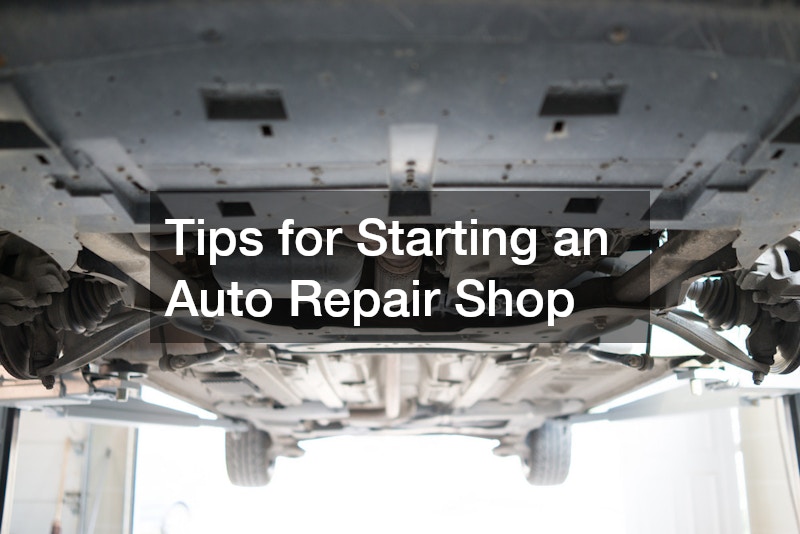
Starting an auto repair shop is an ambitious endeavor that promises both rewards and challenges. This article provides a comprehensive guide to navigating the complex process of establishing a successful shop. We will explore the essentials, from budgeting and legal requirements to marketing and staffing strategies.
Video Source
Opening an auto repair shop involves considerable startup costs, including expenses for equipment, rent, and initial inventory. It is crucial to map out a realistic budget to manage these costs effectively. Prospective owners should also consider a financial cushion for unforeseen expenses during the initial months.
Budgeting necessitates a clear understanding of the fixed and variable costs associated with the operation of the shop. A critical step is conducting market research to determine competitive pricing and anticipated revenue streams. Consulting with financial advisors can provide valuable insights into efficient budgeting practices.
Ultimately, securing funding through loans, investment, or personal savings is essential to cover these startup costs. A well-prepared business plan can be instrumental in convincing banks or investors of the shop's viability. This plan should detail all expected financial outlays and income projections.
Operating an auto repair shop requires adherence to specific legal requirements and obtaining necessary licenses and permits. Different states and localities have varying regulations, making it imperative to research local laws. Compliance not only ensures legality but also protects the business from potential fines and legal challenges.
Essential legal requirements often include a business license, tax identification number, and specialized permits related to environmental and safety standards. Insurance is another crucial aspect, covering liabilities that may arise in daily operations. Consulting with legal professionals can aid in navigating these legal landscapes satisfactorily.
Misse any compliance aspects can lead to substantial penalties or the closure of the business. Therefore, staying informed about evolving regulations is necessary for continued operations. Regular audits and reviews can aid in maintaining compliance over time.
Choosing the right location is pivotal for the success of an auto repair shop, impacting accessibility to customers and operational efficiency. A strategic choice would be a high-traffic area easily accessible to vehicle owners. The location must also adhere to zoning laws applicable to automotive repair businesses.
Evaluating potential facilities involves assessing space for vehicle repairs, customer waiting areas, and storage for parts and equipment. The physical layout should facilitate efficient movement of vehicles and workflow. Investing in a facility that simplifies operations can enhance service delivery and customer satisfaction.
Additionally, proximity to suppliers and compatibility with delivery logistics are advantageous. Establishing strong relationships with suppliers can result in better pricing and reliable inventory. A well-located facility becomes a cornerstone of your competitive advantage and operational efficiency.
Recruiting qualified mechanics is a critical aspect of establishing a reputable auto repair shop. Implementing effective recruiting strategies, such as advertising in industry-specific forums and job boards, is critical. Networking within automotive schools and attending industry expos also can yield connections with potential hires.
Offering competitive compensation packages can attract top talent in the field. Providing benefits like health insurance, retirement plans, and performance bonuses are enticing for skilled technicians. A reputation for fair labor practices and advancement opportunities further helps attract qualified individuals.
Once recruited, ensuring mechanics align with the shop's values and work culture is crucial. A well-structured onboarding process ensures new hires integrate smoothly into the existing team. Continuous engagement and feedback mechanisms can further enhance retention of skilled employees.
Investing in training and professional development is essential for maintaining a team of skilled mechanics. Continuous training programs ensure technicians keep abreast with technological advancements in automotive repair. Offering certifications and courses reinforces the shop's commitment to employee growth.
Professional development opportunities create pathways for career advancement within the organization. Employees who see a future with the company are more likely to remain loyal and engaged. Mentorship programs pairing seasoned professionals with junior staff can foster knowledge transfer and team cohesion.
An emphasis on development encourages a learning culture that is beneficial for both employees and customers. Regularly scheduled workshops and partnerships with training institutions are excellent means to keep staff updated. This approach leads to enhanced service quality and boosts customer satisfaction, reinforcing the shop's reputation.
A positive work environment is instrumental in retaining skilled employees and improving shop performance. Cultivating a culture of respect, open communication, and teamwork encourages employee satisfaction. Recognizing employee contributions and celebrating successes can significantly boost morale.
Providing a safe and healthy workspace is non-negotiable in fostering a positive environment. Ensuring clear workstations, proper lighting, and ventilation reduces workplace hazards and reflects the value placed on employee well-being. Establishing grievance mechanisms and addressing concerns promptly also affect job satisfaction positively.
Regular team-building activities can enhance camaraderie and collaboration among staff. Encouraging a work-life balance demonstrates that the company values employees as individuals. Ultimately, satisfied employees often result in higher customer satisfaction and enhanced business growth.
The journey of establishing a successful auto repair shop involves multifaceted considerations, from managing finance to building a strong customer base. Embracing best practices in hiring, marketing, and operations can significantly impact a shop's success. Prospective owners are encouraged to take the first step towards entrepreneurship with a solid plan and passion for automotive service excellence.
.